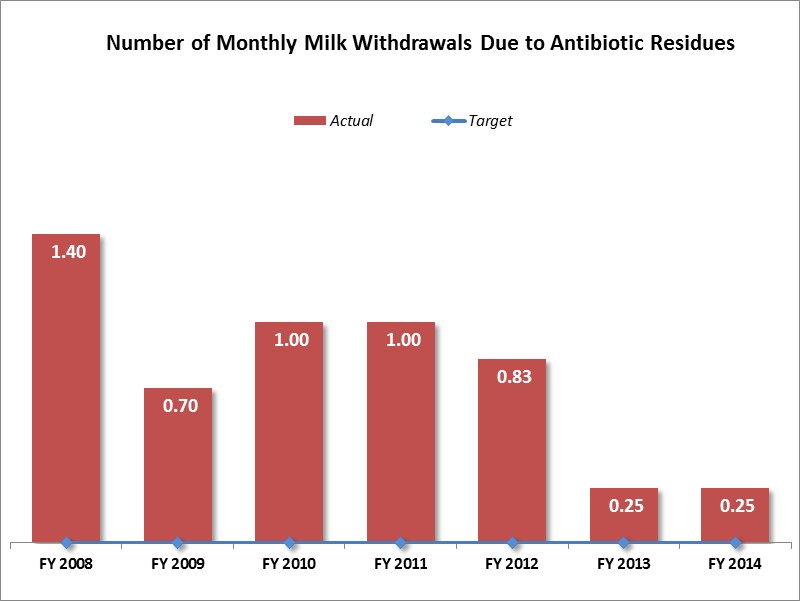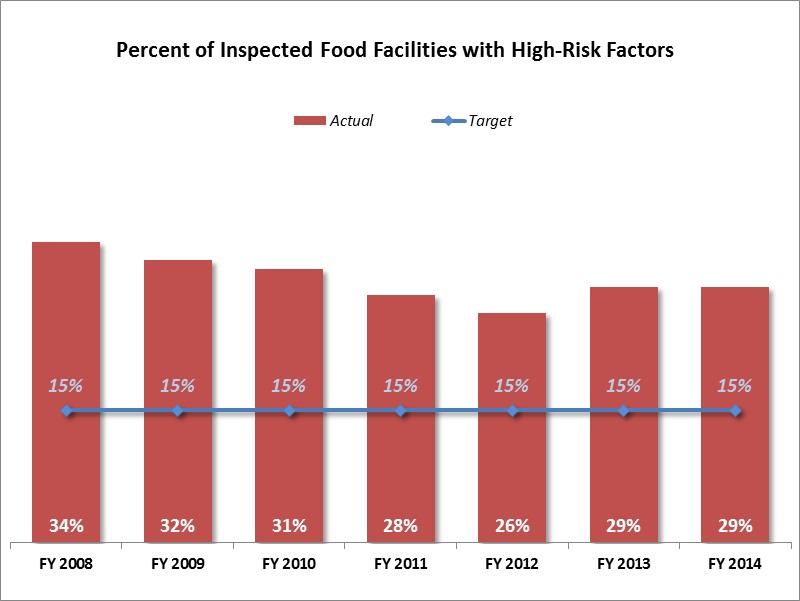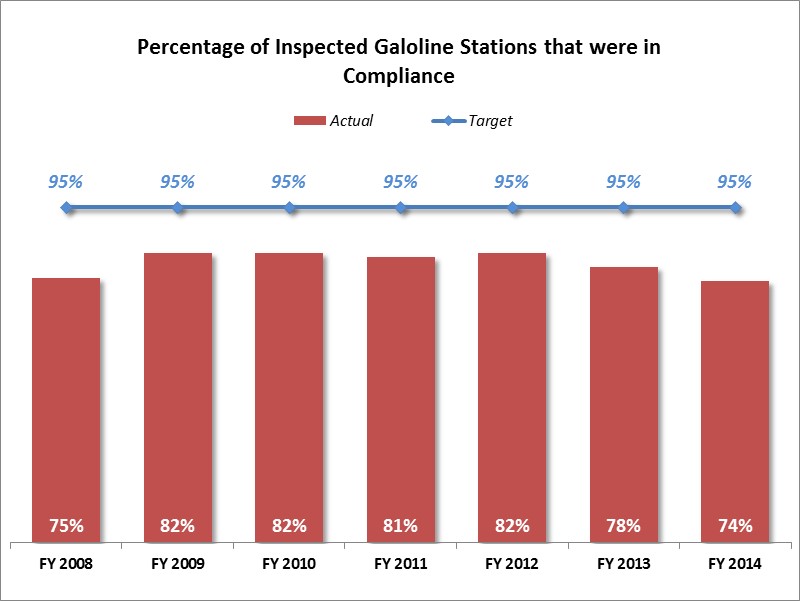The prime responsibility of the Regulatory Services program is to ensure that Utah consumers receive a safe, wholesome, and properly labeled supply of agricultural products. The program also plays an active role in Homeland Security for food protection.
During the 2015 General Session, the Legislature appropriated for Fiscal Year 2016, $4,996,700 from all sources for Regulatory Services. This is a 22.6 percent increase from Fiscal Year 2015 revised estimated amounts from all sources. The total includes $2,095,400 from the General/Education Funds, an increase of 4.8 percent from revised Fiscal Year 2015 estimates.
In addition to statewide compensation and internal service fund cost increases, the following appropriation adjustments were made during the 2015 General Session:
Number of Monthly Milk Withdrawals Due to Antibiotic Residues
Milk Withdrawals: Milk may not be sold if it has antibiotic residues. The figure below presents the number of monthly withdrawals of milk due to antibiotic residue in the milk.

Percent of Inspected Food Facilities with High-Risk Factors
High Risk Factors: The first measure tracks the percentage of facilities processing food that are identified as "High Risk" facilities. High Risk facilities are those that, for any reason, are not meeting minimum industry standards as required by law. Such facilities could pose a high risk for contamination if the items are not processed properly. The target, 15%, is set based on the National 2010 Health Objective.

The inspection results show a favorable trend. However, since staff is not able to inspect all facilities each year, the data cannot be used to determine if the actual number of critical violations per facility is increasing or decreasing.
Percentage of Inspected Gasoline Stations that were in Compliance
Gasoline Station Compliance: Inspectors from the Weights and Measures program inspect the gasoline stations in the state. They test the gas pumps to insure that they are metering the gasoline dispensed properly, test the gasoline in the underground storage tanks to insure that the water content is below safe minimums, test the octane percentage of the gasoline dispensed, and inspect the cleanliness of the facility. The figure below provides the percent of gasoline stations which pass the fuel pump inspection.

The 2014 Legislature removed the Regulatory Services Program from the Administration line item and set it up as a separate line item.
Federal dollars are used for inspecting egg producers/retailers, inspecting meat handlers, grading dairy products, and inspecting school lunches. Dedicated credits come from fees charged for inspections of certain operations where food or dairy products are handled, and registration of food and weight and measures establishments.
COBI contains unaudited data as presented to the Legislature by state agencies at the time of publication. For audited financial data see the State of Utah's Comprehensive Annual Financial Reports.